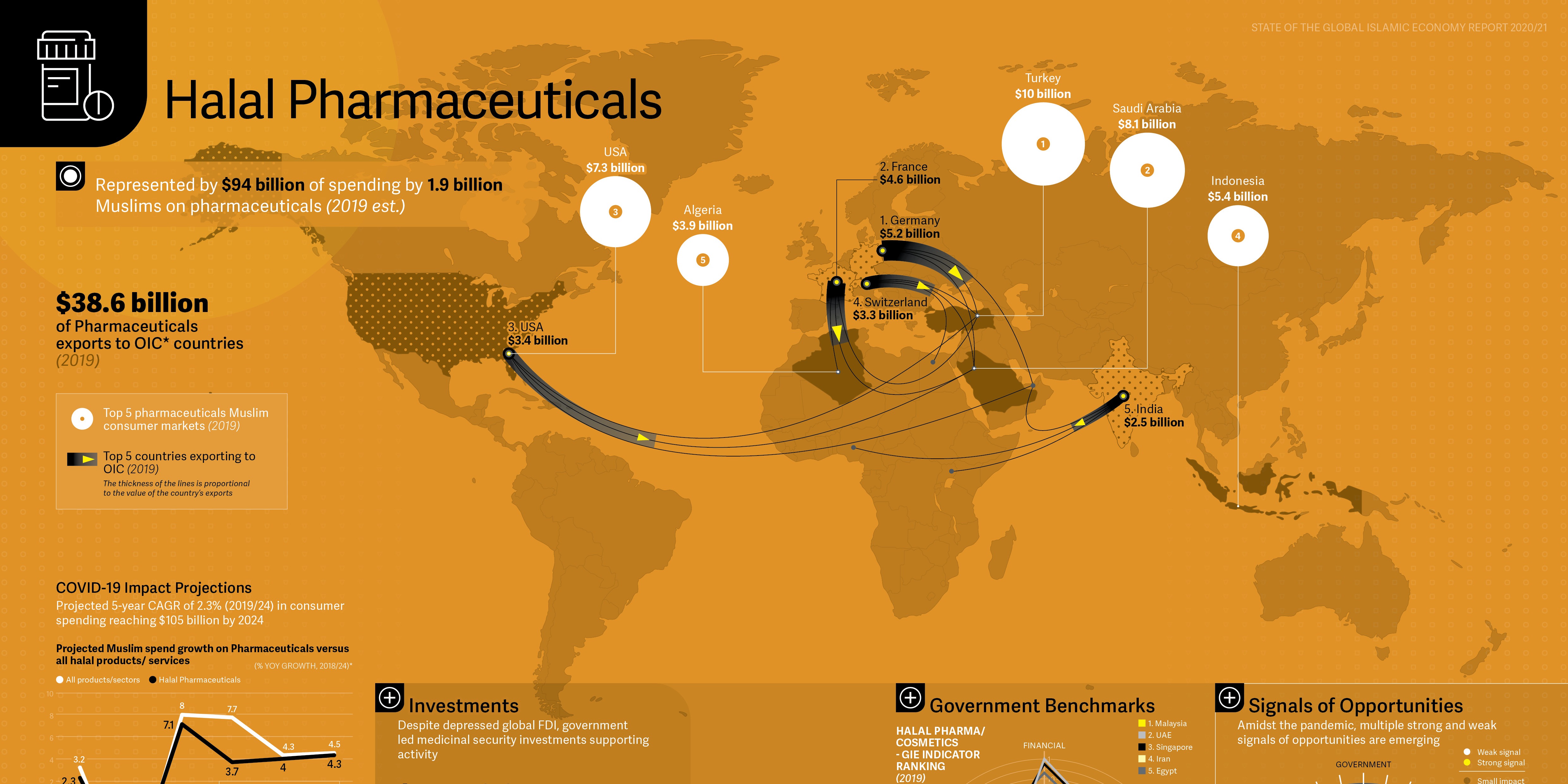Hit by COVID-19, Muslims to spend 6.9% less on pharma in 2020 - study
What were the biggest developments in the global halal pharmaceuticals industry in 2019-2020? The State of the Global Islamic Economy 2020/21 report from DinarStandard gives a detailed breakdown of the movements in the industry.
MARKET SIZE
- Muslims spent $94 billion on pharmaceuticals (note: pharmaceuticals in general, and not halal pharmaceuticals only) in 2019, up 2.3% from $92 billion in 2018.
- Turkey, Saudi Arabia and USA are the top countries by expenditure.
- Muslim expenditure on pharmaceuticals is set to drop by 6.9% in 2020 to $87 billion due to the COVID-19 crisis.
- A recovery to 2019 levels is expected in 2021.
- Muslim expenditure on pharmaceuticals is forecasted to reach $105 billion by 2024.
|
COVID-19 IMPACT
The pandemic has highlighted the shortcomings of the wider halal pharmaceutical ecosystem. Governments have made calls for more pharmaceuticals to be manufactured locally, to avoid being negatively impacted by supply chain issues in the event of future pandemics. However, there are not yet enough halal-certified medicines and ingredients to cover these needs.
Universally accepted halal standards are not yet in place, although the OIC regulatory body, SMIIC, is working towards them. Halal pharmaceutical certification expertise is also not up to par, particularly for vaccines. This has held back the development of a halal-certified COVID-19 vaccine—containing no haram (non-permissible) ingredients such as porcine gelatin or those derived from human fetuses— that would be welcomed by 1.9 billion Muslims.
The COVID-19 pandemic is equally a driver of innovation in the healthcare sector. Apps were launched, including a Shariah-compliant telemedicine solution, and healthcare hijabs for frontline workers in the USA were donated by a modest fashion brand.
SIGNALS OF OPPORTUNITY
COVID-19 has pushed health to the forefront, with preventive care and at-home healthcare expected to grow. Governments prioritizing local manufacturing and companies collaborating across borders point to further opportunities in the sector, according to the State of the Global Islamic Economy 2020/21 report.
Signals of opportunities include:
- Preventive care came to the forefront during COVID-19 and is expected to continue to grow.
- The development of new halal drugs is expected to stimulate the growth of the sector.
- Indonesia and Saudi Arabia are pushing for local manufacturing of pharmaceuticals.
- Healthcare start-ups are flourishing.
|
WHAT IS THE GROWTH AND MARKET SIZE FOR EACH SECTOR? |
© SalaamGateway.com 2020 All Rights Reserved

